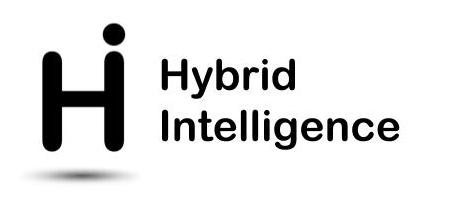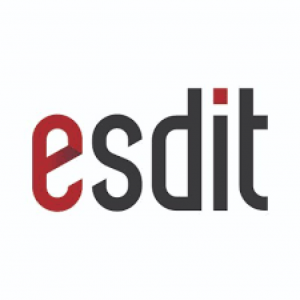
Hybrid Intelligence is a 10-year NWO-funded gravitation project (2019-2029) lead by prof. Frank van Harmelen (VU). It is a Dutch national research program formed initially by a collaboration of top AI researchers from the VU Amsterdam, the University of Amsterdam, the TU Delft, and the Universities of Groningen, Leiden, and Utrecht. I was involved with the proposal while I was still working at TUD, and continued my involvement after moving to University of Twente. UT joined as an associate partner in 2021. Involved researchers work in areas such as machine learning, knowledge representation, natural language understanding & generation, information retrieval, multi-agent systems, psychology, multimodal interaction, social robotics, AI & law and ethics of technology.
I supervise a number of PhD candidates, and serve in various coordinating roles in HI.
Project description
Hybrid Intelligence (HI) is the combination of human and machine intelligence, expanding human intellect instead of replacing it. HI takes human expertise and intentionality into account when making meaningful decisions and perform appropriate actions, together with ethical, legal and societal values. The project’s goal is to design Hybrid Intelligent systems, an approach to Artificial Intelligence that puts humans at the centre, changing the course of the ongoing AI revolution.
Current AI technology surpasses humans in many pattern recognition and machine learning tasks, but it falls short on general world knowledge, common sense, and human capabilities such as collaboration, adaptivity, responsibility and explainability of norms and values. We describe these challenges in an overview paper that was published in IEEE Computer (2020, Best Paper Award).
PhD supervision
I am involved with several PhD projects associated with HI on human-machine alignment through interaction. I am daily supervisor of Pei-Yu Chen (started 2021 at TUD) who works on Human-Agent Alignment Dialogues. The supervising team further consists of dr. Myrthe Tielman (TUD), prof. Catholijn M. Jonker (TUD) and prof. Dirk Heylen (UT). I am also daily supervisor of Johanna Wolff, who is working on the application of non-monotonic reasoning techniques for user model updates in personal agents. This project is co-supervised with prof. Dirk Heylen (UT) and dr. Victor de Boer (VU). Further, I am co-supervisor of Loan Ho (started 2021 at VU) who works on argumentation for modeling knowledge base inconsistencies. First supervisors are dr. Stefan Schlobach (VU) and dr. Victor de Boer (VU), and co-supervisor is dr. Myrthe Tielman (TUD).
Coordination: ethics & HI
I serve in several coordinating roles connected with responsibility and ethics in HI. First, I coordinated the Responsible HI research line together with prof. Bart Verheij (RUG) from the start of the project in 2019 until 2022. In this research line we investigated how we can align humans and AI systems, accounting for human values, norms, motives, commitments, and goals during system design (“ethics in design”) and at run-time (“ethics by design”). The research line comprises 7 PhD projects, addressing topics such as opacity of machine learning systems, value-aligned support agents and ethical aspects of socio-technical system development. We also started a project-wide discussion of what it means to do HI research in a responsible way.

After a restructuring of the project, a Special Interest Group (SIG) on Ethics was created in 2023 with the aim of stimulating reflection on ethical and responsibility aspects of HI across the project, and connecting HI and the gravitation project Ethics of Socially Disruptive Technologies (ESDiT) to stimulate exchange of expertise and collaboration. ESDiT was awarded in the same funding round as HI. The two projects have initiated activities to establish connections, since: 1) addressing ethical aspects forms an important part of creating hybrid intelligent systems that truly support people, and 2) Artificial Intelligence is an important socially disruptive technology considered in the ESDiT project. I am co-chairing the SIG Ethics within HI, and I am co-chair of the committee which oversees the collaboration between these projects (HI-ESDiT committee) together with prof. Ibo van de Poel (TUD).
